Following a healthy diet is very important when pregnant. During this time, the pregnant women need additional nutrients, minerals and vitamins. Actually, they may need about 500 extra calories per day during the both 2nd and 3rd trimesters. When their diets lack essential nutrients, this could negatively affect the development of their unborn babies. Also, excess weight gain and poor eating habits may increase the risk of developing gestational diabetes and birth complications. Choosing healthy foods could help ensure the women’s health and the baby’s health. Also, it could make it easier to lose weight later on.
- Top 15 Foods To Build Muscles Fast And Naturally At Home/ Top 19 Healthy And Nutritional Foods For Eyes Improvement
List Of Healthy Food For Pregnant Women During Pregnancy
In this article, Healthy Guide will show you some of the healthy and nutritious foods you should eat during pregnancy. So, if you are pregnant and want to ensure that you are consuming healthy foods for both yourself and your baby, keep both of your eyes on this interesting article.
CONTENTS
1. Sweet Potatoes
Sweet potatoes have high content of beta-carotene, which is converted into vitamin A. We all know that vitamin A is very important for growth and for the differentiation of almost all the tissues and cells. This is very vital to the healthy fetal development. According to a study, a pregnant woman should increase her intake of vitamin A by about 10-40%.
However, pregnant women should avoid taking very high amounts of vitamin A from animal-based sources because this may cause toxicity. So, beta-carotene is a great source of vitamin A for women when pregnant. And, sweet potatoes are a great source of beta-carotene you should not skip. About 100-150g of cooked sweet potatoes fulfills your recommended vitamin A requirement per day. Moreover, sweet potatoes are rich in fiber, which could increase fullness, improve digestive health and simultaneously reduce blood sugar levels.
List of 26 Best Smoothies For Diabetes Treatment And Relief will show you some of the healthiest smoothies that diabetes should consider consuming, so check it out!
2. Eggs
Eggs are known as a healthy food for pregnant women during pregnancy as they contain almost all of the nutrients that the pregnant woman’s body needs. According to a study, a large egg contains about 77 calories, high-quality protein as well as healthy fats. Also, it is rich in essential minerals and vitamins. Eggs are rich in choline, which is important for many functions in the body, including the development of the brain. The low intake of choline during pregnancy could increase the chance of neural tube defects, and even it could result in decreased brain function. A whole egg has about 113mg of choline, satisfying about 25% of your recommended intake per day for pregnant women.
Read on 27 Vitamins For Brain Health Improvement In Adults And Kids to discover some of the best vitamins that can help to improve your brain health in children and adults.
3. Lean Meat
Beef, chicken and pork are great high-quality protein sources. Moreover, beef and pork also contain high contents of choline, iron and other B-vitamins. Pregnant women need higher amounts of these nutrients. Iron is known as an essential mineral and it is used as a part of hemoglobin by red blood cells, so this mineral is important for carrying oxygen to all body’s cells. During pregnancy, especially during the 3rd trimester, women need higher amounts of iron because there is an increase in their blood volume. During early and mid-pregnancy, low levels of iron could lead to iron deficiency anemia, which may increase the risk of low birth weight and premature delivery.
It may be difficult to meet the requirements of iron with diet alone, especially when many women have an aversion to meat during pregnancy. Nonetheless, for other women who can, consuming red meats regularly could help increase the iron levels from the diet. Also, consuming vitamin C-rich foods such as oranges and bell peppers could also help in increasing the iron absorption from meals.
If you want to know some of the best healthy recipes for pregnant women, read on List Of 25 Best Healthy Pregnant Recipes For Women To Go!
4. Berries
Berries are another healthy food for pregnant women during pregnancy that I want to mention in this article and want all of my readers to know and then consume for good. They are loaded with water, fiber, healthy carbs, and plant compounds. Also, they are rich in vitamin C, which helps to absorb iron, improve skin health as well as immune function. Moreover, berries have a low glycemic index value; therefore, they will not cause an increase in blood sugar. Plus, berries are also a wonderful snack as they contain both fiber and water. They could offer a lot of nutrition and flavor, but few calories.
To know some of the homemade juices that can provide your skin with a natural glow, read on 22 Homemade Juices For Glowing Skin In A Week
5. Avocados
When it comes to healthy food for pregnant women during pregnancy, you should not skip avocados. Avocados contain a large amount of monounsaturated fatty acids. Also, avocados are rich in healthy fats, fiber, folate, potassium, copper, vitamin C, vitamin E, and vitamin K, so they are a healthy food for pregnant women. The healthy fats could help to build the brain, skin and tissues of the fetus while folate could help to prevent neural tube defects. During pregnancy, potassium could help to ease leg cramps, which are a pregnancy side effect for some women. Plus, avocados are also richer in potassium than bananas.
Read On: How To Get Rid Of Cramps In Leg And Hands – 15 Ways
6. Dairy Products
Pregnant women need to consume extra calcium and protein to meet the requirements of the developing fetus. Dairy products contain two kinds of high- quality protein: whey and casein. Dairy products are also rich in calcium, phosphorus, magnesium, various B-vitamins and zinc.
Especially, Greek yogurt is very good for women during pregnancy. It has more levels of calcium than other types of dairy product. Also, some varieties of yogurt contain probiotic bacteria that could help with digestive health. During pregnancy, taking probiotic supplements could help to lower the risk of health complications such as gestational diabetes, preeclampsia, vaginal infections as well as allergies.
7. Salmon
Pregnant women often do not get enough omega-3s from their diet. Salmon is high in omega-3 fatty acids, which can help to build the eyes and brain of the fetus. However, pregnant women should limit their intake of seafood to twice per week because of the mercury as well as other contaminants present in fatty fish. However, some studies have shown that pregnant women who consume 2-3 meals of salmon per week could achieve their recommended requirement of omega-3s and simultaneously increase their blood levels of DHA and EPA. Moreover, salmon is also one of the best sources of vitamin D, which is very important for many functions in the body, including immune function and bone health.
See More: Top 14 Best Foods For Bones Growth And Strength
8. Legumes
This food group includes lentils, beans, peas, chickpeas, peanuts and soybeans. According to a study about nutrition facts of legumes [1], legumes are great sources of fiber, folate, protein, iron, and calcium. And all of these nutrients the women’s body need more during pregnancy. Folate is very essential for the health of both the mothers and their fetus, especially during the 1st trimester. Nonetheless, most of the pregnant women do not consume enough folate. This may be associated with a higher risk of low birth weight and neural tube defects. A lack of folate may also increase the risks for the child to develop infections and disease later on. And, legumes are very rich in folate. A cup of lentils, black beans or chickpeas may offer about 65–90% of the RDA.
9. Fish Liver Oil
This is another healthy food for pregnant women during pregnancy that all of my female readers should know and then try to consume for good. According to a research [2], fish liver oil is very rich in omega-3s EPA and DHA, which are good for eye and fetal brain development. It also has high content of vitamin D and many people do not take enough this essential vitamin. Therefore, it may be a great option for those who rarely eat seafood or take supplements with vitamin D or omega-3s.
Low intake of vitamin D may be associated with a higher risk of preeclampsia, which is characterized by swelling of the feet and hands, high blood pressure and excess protein in the urine. During early pregnancy, consuming cod liver oil has been associated with a high birth weight and a reduced risk of diseases later in the child’s life. About 1 tbsp. of fish liver oil offers more than recommended requirements of vitamin A, vitamin D and omega-3s per day.
10. Dried Fruits
Dried fruits are rich in calories and various vitamins and minerals. They contain the same levels of nutrients as fresh fruits, but in a much smaller form. So, a serving of dried fruits can offer most of the recommended requirements of many nutrients, including iron, folate, and potassium. Dates are rich in fiber, iron, and potassium and regular intake of date in the 3rd trimester may help to reduce the requirement to induce labor and facilitate cervical dilation. Meanwhile, prunes are rich in potassium, fiber, sorbitol and vitamin K. They are actually natural laxatives and are effective in reducing constipation.
However, keep in mind that dried fruits also contain high level of natural sugar, so pregnant women should avoid the candied varieties. Dried fruits may help to increase nutrient and calorie intake, but it is not recommended to have more than one serving of dried fruits at a time. The high level of performed vitamin A could cause harm to the fetus while high levels of omega-3 fatty acids could have blood-thinning effects as well.
11. Herring
Herring has 2g of EPA and DHA for each serving, making it one of the best foods for pregnant women. Taking more than 2g of DHA a day during pregnancy could help to support brain development of the baby. Experts have found that adding fish to the diet can help with the baby’s brain development and better sleep after labor. The bones are soft and they are also easy to remove. Herring can be grilled or baked with some acidic flavors like lemon and white wine. Actually, herring is another healthy food for pregnant women during pregnancy that a lot of people in the world love and have been consuming to get all of its nutrients.
12. Broccoli
Broccoli contains many essential nutrients that pregnant women may need. According to a research about nutrition facts of broccoli [3], it has vitamins A, C, K, fiber, calcium, folate, iron and potassium. Moreover, broccoli is also rich in antioxidants, which are good for immune system and digestion. Thanks to its high content of fiber, broccoli may also help to reduce the risk of constipation, which is a common health problem among pregnant women. Also, eating broccoli also helps to reduce the risk of low birth weight.
If you want to know other healthy foods for pregnant women, you should keep reading this article and then try to consume more of these healthy foods for good.
13. Beans And Walnuts
Beans are rich in protein, iron, potassium, folic acid, magnesium, and healthy fatty acids. All of these nutrients are important for pregnant women. Also, beans are also rich in fiber, which can prevent and relieve two common discomforts during pregnancy: constipation and hemorrhoids. Walnuts are one of the best plant-based sources of omega-3s, protein and fiber.
14. Whole Grain
When you are looking for a healthy food for pregnant women during pregnancy, you should not skip whole grains. Consuming whole grain could help to meet the higher calorie requirements during pregnancy, especially during the 2nd and 3rd trimesters. Actually, whole grains are loaded with fiber, vitamins and minerals. Also, whole grains contain a high amount of protein, fiber, magnesium and B-vitamins. All of these nutrients are often lacking in the women’s diets during pregnancy.
15. Dark Leafy Greens
Spinach, Swiss chard, kale as well as other dark leafy veggies are superfoods that pregnant women should consume more. All of these veggies are packed with vitamins A, C, and K, and minerals like folic acid. It is so easy to increase the intake of greens. Just need to chop them and then include in your soups, smoothies, stir-fries or omelets,.
16. Fortified Breakfast Cereal
Do you know that folate is important during pregnancy? According to a study about folic acid and pregnancy [4], experts advise that pregnant women should get about 400 micrograms of folate per day through fortified foods or vitamin supplements and another 200 micrograms through folate- rich foods, such as black-eyed peas and asparagus. And fortified breakfast cereal is a great option when many brands provide 400 micrograms of folate per bowl.
17. Bananas And Oranges
Bananas are rich in potassium and other nutrients that can help to fight off pregnancy fatigue. If you have nausea, bananas are also easy on the stomach. Just need to slice them up into cereal or combine one with a breakfast smoothie with berries, yogurt, and ice. Besides, oranges are also loaded with folate, vitamin C and fiber and they are 90% water, so they can help to meet the daily fluid requirements.
18. Colorful Fruits And Veggies
Eating colorful fruits and vegetables can help both you and your unborn baby get lots of nutrients. Keep in mind that each color group offers different vitamins and minerals. Salads are a simple way for you to combine colorful vegetables and fruits.
19. Cheese
During pregnancy, you should stay away from soft cheeses, but varieties such as mozzarella and cheddar can be great options to meet your calcium requirements. Each ounce offers 150-200mg of calcium. Also, cheese is high in protein. Actually, cheese is known as a healthy food for pregnant women during pregnancy that my female readers should know and then try adding it to their diet for good.
20. Whole-Grain Bread
By adding traditional white bread to your diet, you can ensure that you get 20- 35g of fiber per loaf. Whole-grain bread also provides you with a large amount of iron and zinc.
21. Nuts & Nut Butters
Fat is very important for the baby’s brain development and also helps to keep you full for longer. Instead of getting saturated fats found in butter and meat, you should opt for unsaturated fats found in nuts. However, nuts and nut butters are high in calories and fat, just consume 1 ounce of nuts and 2 tbsp. of nut butters. But, you have any allergy, you should avoid highly allergenic foods like peanuts during pregnancy.
22. Figs
Figs are a great source of fiber, potassium, magnesium, phosphorus and calcium. These tooth-supporting nutrients are good for your own mouth and your growing baby’s mouth. Moreover, figs are also rich in iron. A lack of iron can cause anemia, especially when you are pregnant, thanks to the increased blood volume and increasing demands for iron to produce red blood cells. Figs will also offer a large amount of vitamin K, which is required for bone formation and blood clotting. In fact, figs are another healthy food for pregnant women during pregnancy that you should consider adding to your diet, especially if you are pregnant.
23. Leeks
Leeks are a source of calcium, which is important for the bone development of your unborn baby. Also, calcium may help to fight against some common pregnancy discomforts, including insomnia, irritability, and back and leg pains. A serving of leeks also offers 0.2 mg of vitamin B6, which helps to reduce morning sickness and 60 micrograms of folate, which is required to metabolize energy from the fats, carbohydrates and proteins. Moreover, a serving of leeks offers 40 micrograms of vitamin K, 0.4 micrograms of manganese and 2 micrograms of iron. Actually, vitamin K is required for the proper formation of blood-clot and healthy bone growth while manganese is required to support normal skeletal development of the baby. Leeks have a sweet flavor, making them a great option when you have morning sickness. Try adding some sliced leeks, shiitake mushrooms and minced fresh ginger to your plain broth.
24. Artichokes
This vegetable is a great source of iron and folate, making it a healthy food for pregnant women during pregnancy. Apart from preventing birth defects, folate can help to metabolize proteins. Besides, during pregnancy, you may have constipation, which can be reduced with some extra fiber. And, artichokes are great sources of fiber, which is also recommended to reduce indigestion, another common pregnancy discomfort. Simply, dip steamed leaves of artichoke in some melted butter mixed with fresh lemon juice.
25. Chives
Seen as a garnish, chives are often overlooked. However, these mild-tasting green onions are rich in folate, fiber, iron, calcium, vitamin C, vitamin B6, and magnesium. Folate may be one of the best nutrients in the 1st trimester. Without folate, your baby has a higher risk for structural defects. Two tbsp. of chopped chives offer about 6.4 micrograms of folate. For proper iron absorption, pregnant women need vitamin C and chives offer you both vitamin C and iron. Plus, chives are rich in magnesium, which can help reduce constipation, a common pregnancy discomfort. Chives are easy to buy at your local market and grow at home. You just need to sprinkle some chives on your soups and salads.
26. Tahini
A few tablespoons of tahini have over 6g of the omega-6s, which are important for healthy immune system and proper cell integrity. Moreover, tahini is also rich in thiamin, copper, phosphorus, and manganese, all of which are important for your baby’s healthy development. Tahini is great in hummus, on crackers and in other dips, or it is also considered as a great ingredient in salad dressing.
There are other healthy foods for pregnant women during pregnancy in this article. So, continue to read this interesting article and then try to consume these foods more for good.
27. Molasses
Sweet and loaded with sugar, molasses may be not what you want to start every dish. But, the fact is that molasses contains essential nutrients such as magnesium and vitamin B6. Manganese plays a vital role in healthy bone development of your growing baby. Vitamin B6 is important for the sodium-phosphorus balance. And potassium is another mineral that is related to water retention. Taking enough potassium and vitamin B6 may help relieve your swollen ankles and feet. Try blackstrap molasses as sweeteners in your smoothies, oatmeal or yogurt, in ginger tea or in breads and other baked foods.
28. Pumpkin Seeds
When your uterus grows, your abdominal and hip muscles and back muscles are needed to stretch. By adding enough protein to your diet, these muscles will be improved to keep up with new tasks. And you can add pumpkin seeds to your diet in order to boost the intake of protein. These pumpkin seeds also contain potassium, sodium, iron, calcium, zinc, phosphorus, and other minerals associated with muscle health and hydration. Roasted seeds have much more protein, fiber and other minerals than raw ones. Buy pumpkin seeds raw and then roast them at the comfort of your own home. Actually, this is another healthy food for pregnant women during pregnancy that you should not look down, yet try to consume for good.
29. Basil
Basil is also a healthy food for pregnant women that you should not skip out if you want to improve women’s health. This fresh herb is rich in vitamins A, C, E, B6, K, and minerals such as protein, fiber, magnesium, zinc, phosphorus, potassium, copper and manganese [5]. Plus, basil is also loaded with iron, which can help keep the energy levels up; calcium, which is good for healthy development of bones and teeth; and folate, which is important for fetal cell growth and division. For the best results, choose fresh basil since it has more nutrients than dried basil. To enjoy the fresh basil leaves, you can add them to your salads.
30. Water
This is the last but very healthy food for pregnant women that I want to mention in this article and want all of my readers to consume for good. During pregnancy, blood volume rises by up to 1.5l. As a result, it is important for you to stay hydrated. Some common symptoms of mild dehydration are anxiety, headaches, tiredness, reduced memory and bad mood. Addition to this, increasing the intake of water may help to reduce constipation and urinary tract infections, which are common pregnancy side effects. Generally, you should drink about 1- 2l of water each day, but the required amount of water varies by individual. Drink water whenever you are thirsty until you satisfy your thirst. Just remember that you can also get water from other beverages and foods such as coffee, tea, fruit juice and fresh vegetables.
Actually, what you consume during pregnancy will affect the health of yourself and your unborn baby. As calorie and nutrient needs increase during pregnancy, you should choose nutrient-dense and healthy foods to meet your requirements. So, consider adding one or more of the healthy foods as I mentioned above as soon as possible if you want to improve your health during pregnancy. Also, these foods can help to boost the development of your unborn baby. One more thing, if you know other healthy foods for pregnant women, share them with other readers by leaving your comments below.

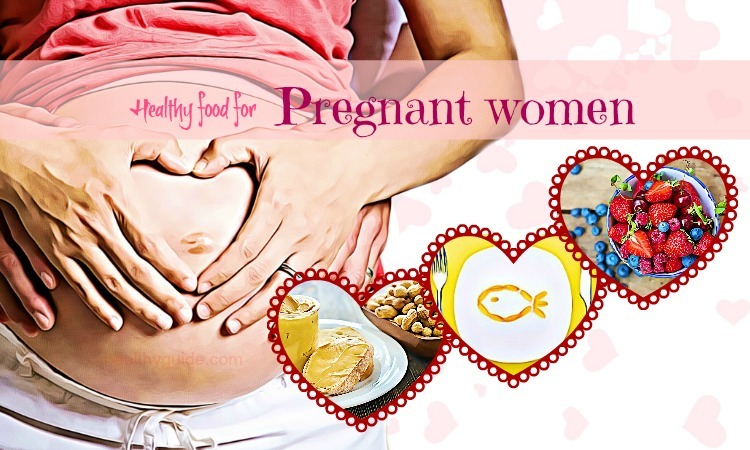
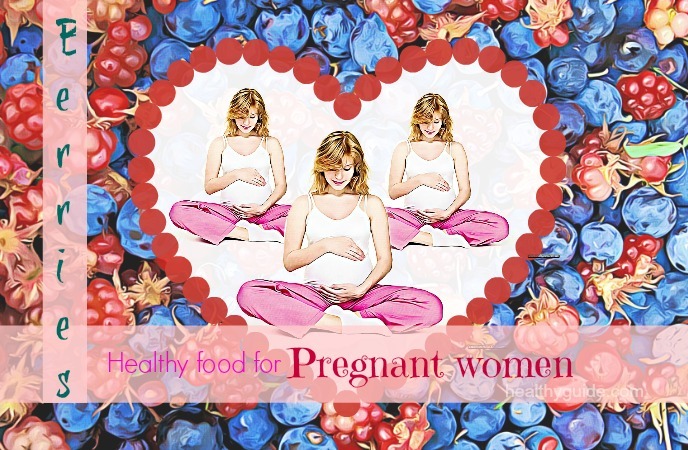
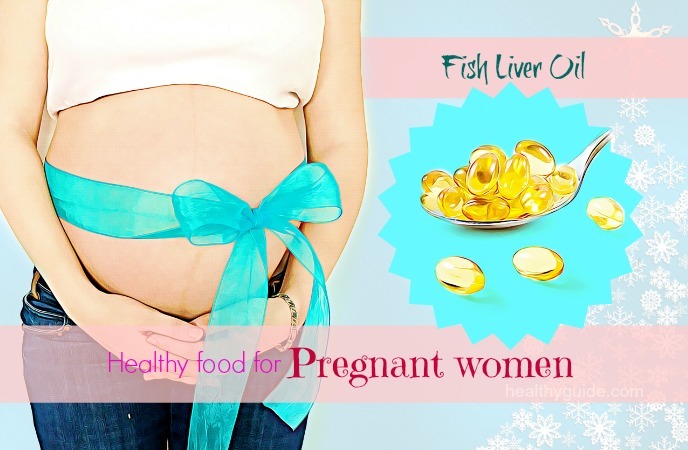
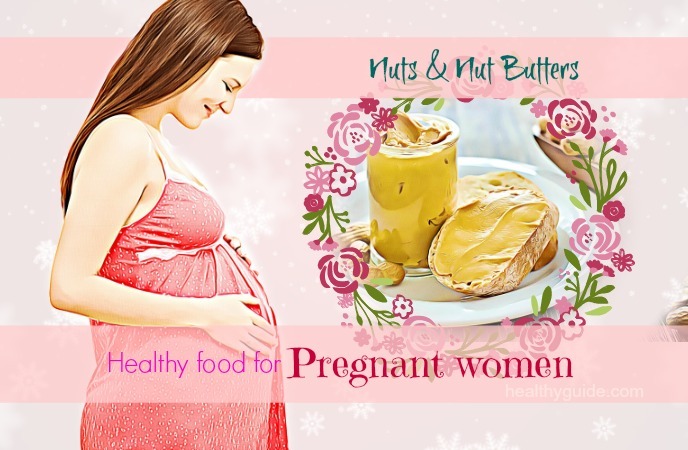

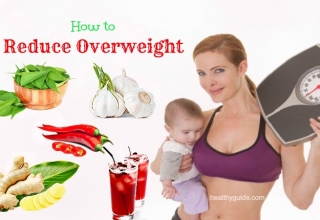

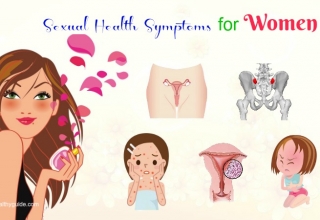


























Leave a Reply